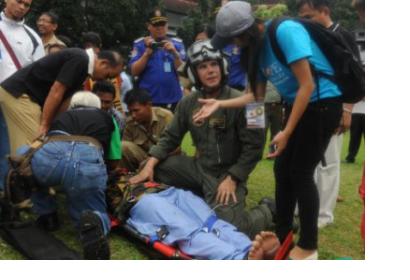As the frequency, severity and economic losses of disasters continue to increase across the globe, the United Nations’ first-ever global champion for disaster risk reduction, Indonesia's President Susilo Bambang Yudhoyono, kicked-off a two-day global meeting in Jakarta on 19 February, 2013 by backing calls for hardwiring disaster management into the global development agenda. The main focus of the Jakarta consultations will be on the ability of governments and international organizations to prevent and manage the aftermath of disasters as one of their top responsibilities.
In the last 30 years, natural disasters have cost the world some USD 3.5 trillion. In the Asia-Pacific region alone, the economic costs of disasters have risen, on average, by a factor of 16. More than 1.3 million people have been killed by disaster in the last two decades, almost all of them (95 percent) in developing countries. Disasters have prevented many countries from achieving the Millennium Development Goals (MDGs), and increasingly threaten development assistance investments.
The Jakarta consultations brought together academic experts, private sector, governments, the UN system and civil society groups in discussions on how to best integrate responses to disaster prior to a review conference on the themes of conflict, violence and disaster in the Post-2015 agenda to be held in Helsinki, Finland, on 13 March 2013.

